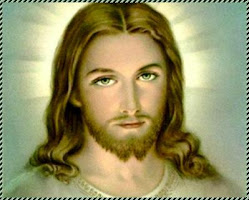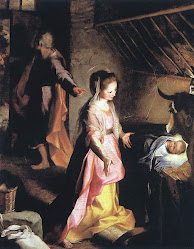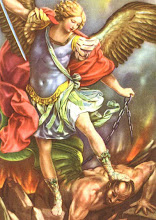Origin of Christianity
Christianity is the name given to that definite system of religious belief and practice which was taught by Jesus Christ in the country of Palestine, during the reign of the Roman Emperor, Tiberius, and was promulgated, after its Founder's death, for the acceptance of the whole world, by certain chosen men among His followers. According to the accepted chronology, these began their mission on the day of Pentecost, A.D. 29, which day is regarded, accordingly, as the birthday of the Christian Church.
In order the better to appreciate the meaning of this event, we must first consider the religious influences and tendencies previously at work in the minds of men, both Jews and Gentiles, which prepared the way for the spread of Christianity amongst them.
The whole history of the Jews as detailed in the Old Testament is seen, when read in the light of other events, to be a clear though gradual preparation for the preaching of Christianity. In that nation alone, the great truths of the existence and unity of God, His providential ruling of His creatures and their responsibility towards Him, were preserved unimpaired amidst general corruption.
The ancient world was given to Pantheism and creature-worship; Israel only, not because of its "monotheistic instinct" (Renan), but because of the periodic interposition of God through His prophets, resisted in the main the general tendency to idolatry. Besides maintaining those pure conceptions of Deity, the prophets from time to time, and with ever increasing distinctness until we come to the direct and personal testimony of the Baptist, foreshadowed a fuller and more universal revelation — a time when, and a Man through Whom, God should bless all the nations of the earth. We need not here trace the Messianic predictions in detail; their clearness and cogency are such that St. Augustine does not hesitate to say (Retract., I, xiii, 3):
What we now call the Christian religion existed amongst the ancients, and was from the beginning of the human race, until Christ Himself came in the flesh; from which time the already existing true religion began to be styled Christian. (St Augustine).
We may trace in the world at large, apart from the Jewish people, a similar though less direct preparation. Whether due ultimately to the Old Testament predictions or to the fragments of the original revelation handed down amongst the Gentile, a certain vague expectation of the coming of a great conqueror seems to have existed in the East and to a certain extent in the Roman worlds, in the midst of which the new religion had its birth. But a much more marked predisposition to Christianity may be noticed in certain prominent features of the Roman religion after the downfall of the republic. The old gods of Latium had long ceased to reign.
In their stead Greek philosophy occupied the minds of the cultured, whilst the populace were attracted by a variety of strange cults imported from Egypt and the East. Whatever their corruption, these new religions, concentrating worship on a single prominent deity, were monotheistic in effect. Moreover, many of them were characterized by rites of expiation and sacrifice, which familiarized men's minds with the idea of a mediatorial religion. They combined to destroy the notion of a nation cultus, and to separate the service of the Deity from the service of the State. Finally, as a contributory cause to the diffusion of Christianity, we must not fail to mention the widespread Pax Romana, resulting from the union of the civilized races under one strong central government.
Christianity is developed from Judaism in the sense that it embodies the Divine revelation contained in the latter creed, somewhat as a finished painting embodies the original rough sketch. The same hand was employed in the production of both religions, and by type and promise and prophecy the Old Dispensation points clearly to the New. But type, and promise, and prophecy as clearly indicate that the New will be something very different from the Old. A fuller revelation, a more perfect morality, a wider distribution was to mark the Kingdom of the Messias.
"The end [or object] of the Law is Christ", says St. Paul (Rom., x, 4), meaning that the Law was given to the Jews to excite their faith in the Christ to come. "Wherefore", he says again (Gal., iii, 24), "the law was our pedagogue unto Christ", leading the Jews to Christianity as the slave brought his charges to the school door. Christ reproached the Jews for not reading their Scriptures aright. "For if you believed Moses, you would perhaps believe me also; for he wrote of me" (John, v, 46). And St. Augustine sums the whole matter up in the striking words:
"In the Old Testament, the New lies hidden; in the New, the Old is made manifest" (St. Augustine, De catechiz. rud., iv, 8).
The Christianity, then, which the Apostles preached on the day of Pentecost was entirely distinct from Judaism, especially as understood by the Jews of the time; it was a new religion, new in its Founder, new in much of its creed, new in its attitude towards both God and man, new in the spirit of its moral code.
"The Law was given by Moses; grace and truth came by Jesus Christ" (John, i, 17).
St. Paul, as was to be expected, is our clearest witness on this point. "If any man be in Christ", he says, "he is a new creature; old things are passed away; behold all things are new" (II Cor., v, 17). How new Christianity was, the Jews themselves showed by putting its Author to death and persecuting His adherents. We may notice that the Church very early found it necessary to emphasize her distinctness from Judaism by abandoning the essentially Jewish rites of circumcision, Temple-worship, and observance of the Sabbath.
Judaism is not the only religious system that has been requisitioned by rationalistic writers to account for the appearance of Christianity. Points of similarity between the teaching of Christ and His Apostles and the great religions of the East have been taken to indicated a derivation of the latter system from the earlier, and the elaborate eschatology of the Egyptian religion has been quoted to account for certain Christian dogmas about the future life. It were a long and not very profitable task to state and refute these various theories in detail. Underlying all of them is the rationalistic postulate which denies the fact and even the possibility of Divine intervention in the evolution of religion.
http://www.newadvent.org/cathen/03712a.htm
http://www.spaceandmotion.com/christianity-christian-jesus-christ.htm
ARTICLES OF THE CHRISTIAN RELIGION
Iscriviti a:
Commenti sul post (Atom)





















Nessun commento:
Posta un commento